‘S.H.I.E.L.D.’ and The Subversion Of Human Nature
Sept. 23 brings the season 2 premiere of the superhero/spy television series “Marvel’s Agents of S.H.I.E.L.D.” Here’s how I explored the finale of S.H.I.E.L.D.’s first season.1
Thanks to the May 13, 2014 season 1 finale of “Marvel’s Agents of S.H.I.E.L.D.”, I feel vindicated about my hopes for the series and encouraged by its honest look at human nature.
In February 2013 Joss Whedon previewed The Avengers TV spinoff that would follow back-from-the-dead S.H.I.E.L.D. Agent Phil Coulson and his new team of spies in a series of stories set in the shared Marvel Cinematic Universe. Whedon said “S.H.I.E.L.D.” would be “a very hopeful show” and even seemed to promise something remarkably angst-free, even G-rated. “It’s not about murder, and it’s not about crime, and it’s not people looking into their own belly buttons,” Whedon said. “It’s about people who are trying to help each other.”
This sounds swell, but in practice the premise came off unremarkable. Stories such as episode 7, “The Hub,” followed a slow “mystery of the week” formula. You didn’t need to be clairvoyant to predict how stock-brilliant-hacker-with-a-past Skye would get caught breaking into “S.H.I.E.L.D.” files or how sleek professional-fighter Agent Ward would start respecting young tech-brainy Agent Fitz.
Some fans were discouraged by the season’s first stories and viewership dropped. But I was sure the “S.H.I.E.L.D.” folks knew what they were doing. After all, other classic series such as Star Trek: The Next Generation took three seasons to get really good. And what happened to that other sci-fi series by Joss Whedon whose 14 episodes front-loaded the snappiest dialogue and deepest character development? Maybe “S.H.I.E.L.D.” started off slow to avoid raising expectations too high for the inevitably lower-budget series and is saving the best for last.
The midseason finale “The Bridge” blew things up real well but felt like a cliffhanger-by-committee. Hulu quit giving away “S.H.I.E.L.D.” and I was reluctant to buy more on Amazon.
‘Turn, Turn, Turn’
Then came Captain America: The Winter Soldier, and all the pundits who said “S.H.I.E.L.D.” needed some shakeup got their wish times ten in episode 17, “Turn, Turn, Turn.” Beware spoilers: all along, the benevolent agency “S.H.I.E.L.D.” was infiltrated by double agents of Hydra, a society of Captain America’s gallery of neo-Nazi rogues. By the pivotal episode’s last seconds, viewers were shocked to find that one of “S.H.I.E.L.D.”’s stars, Agent Ward — the handsome-yet-kinda-boring one — was also a Hydra agent.
This leads me to wonder whether some of “S.H.I.E.L.D.”’s advance promotion ends up an act of stage patter. What about that promise of a family-friendly show about decent, heroic secret agents simply trying to make a difference? If I didn’t know better I’d say the TV suits shelved that idea real fast and ordered from the top down: “Needs more double-crossing. Make one cast member evil. Add blood.” Instead, this was the Marvel story plan all along.
Fans realized this planned plot twist was why they couldn’t get attached to Ward. Despite Ward’s sacrifices for others and good-guy behavior in 16 episodes, the detachment was by design. Unlike other stunt plot twists that come out of nowhere (I’m looking at you, Frozen) writers had all along planned Ward’s bent toward evil and made sure that it made sense.
“S.H.I.E.L.D.” feels more truthful now that its stories explore such truths of human evil — and by name. In “Ragtag” we meet Ward’s teenage arson-prone self and watch him become recruited by Agent Garrett, who poses as a new father/mentor figure. We see Ward kill more agents, including attempted assassinations of his former friends, Agents Fitz and Simmons. Ward even commits visual media’s unpardonable sin: he shoots the dog.
Other thoughtful superhero stories such as The Dark Knight (2008) assume their villains are irredeemably evil, but “S.H.I.E.L.D.” directly asks its heroes and fans: Is Ward born evil? Does he have the will to choose otherwise? Even before Ward’s shoot-the-dog sin the story has (so far) answered exactly according to a Reformed Christian catechism: Ward was born in sin and is totally depraved, and only an act of supernatural regeneration can save him.
But if you prefer emphasizing the human-free-will concept or seeing more reflections of redeemed man, “S.H.I.E.L.D.” still has your back. After all, Agent Coulson and his allies must confront the total-depravity question on an organizational level. The “basically good” big-government spy agency to which Coulson dedicated his life to help others turned out to be rotten to the core with Hydra worms. Can the agency be redeemed? In The Winter Soldier, Captain America answered with a flat no: the whole agency must go down. “S.H.I.E.L.D.” takes another step. In the season finale “Beginning of the End,” head spy Nick Fury (lengthy cameo by Samuel L. Jackson) charges Coulson to—as I suspected—forge a new S.H.I.E.L.D. The old evil-infested agency may be finished. But Coulson has a chance to redeem it.
‘S.H.I.E.L.D.’ of shattered faith
Marvel, when given a chance to take its unprecedented shared-universe superhero films to the small screen, chose to write stories that subvert naïve optimism about basically-decent government agencies and even human beings themselves.
What does this say about humans?
Clearly we do not believe our own press.
We may vote for real-life political leaders who promise basically-decent bureaucracies that only want to do some good. But we don’t trust big-government agencies in our fiction.
We may cheer for real-life heroes as if they’re beyond evil. But we understand completely when poser heroes in our fiction reveal their evil nature—and we favor their punishment.
Make no mistake: “S.H.I.E.L.D.” is still optimistic, still a series about true heroes, and still relatively family-friendly (but hide the children’s eyes or perhaps your own in moments such as in the season finale when evil Agent John Garrett lunges at the military general). But its subversion of human nature reflects the Scripture’s truth: “The heart is deceitful above all things, and desperately sick.” By the season finale even the “resurrected” Agent Phil Coulson reveals lingering potential for unwitting evil. “None is righteous, no, not one.”
“S.H.I.E.L.D.” offers hope that evil agents are punished and good agents can restrain evil and manage to be a force for good.


































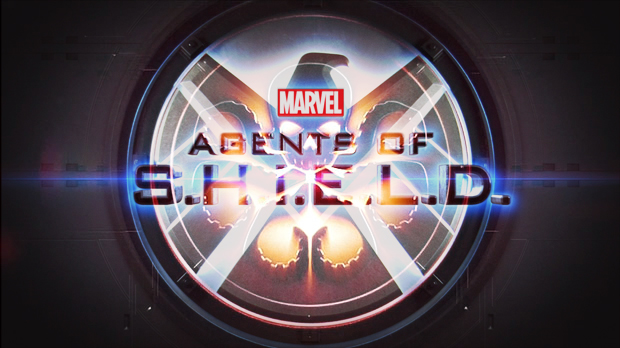

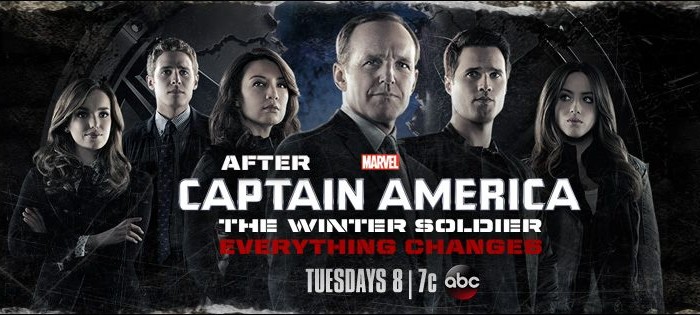


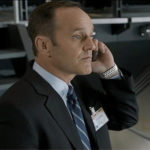

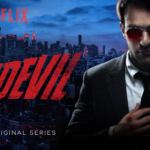
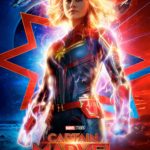



Sounds like however ambitious they were, the producers just didn’t plan this series out well. I can appreciate a slow build, but the audience has to want to stick around for sixteen episodes before shizz gets really real. But I’ll have to wait for it to come out on Netflix before I can really dissect it, but if it’s that blah for sixteen episodes, why bother?
But I’m curious how they played Agent Judas out. We apparently weren’t really supposed to get attached, but I think we’d need to have some sort of regard for the character or else the double-cross falls flat, feels-wise. So he’s not chummy-chum, but are we at least supposed to respect his skills and accomplishments?